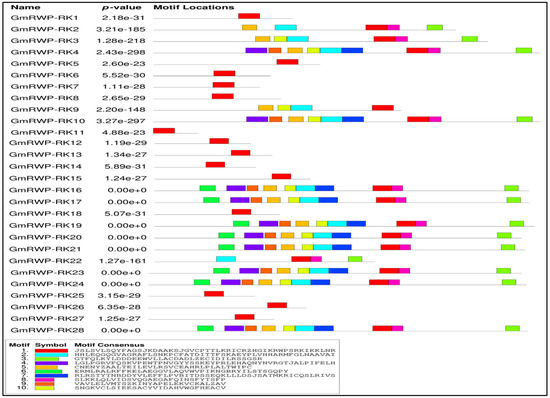Soybeans are the most important source of vegetable oil and protein and are rich in health-care ingredients. The soy products made from them also have healthcare functions such as antioxidants, lowering blood lipids, and delaying diabetes. In recent years, more genetically modified soybean derivatives have entered the market and people's lives. Genetically modified soybeans are soybeans with the desired traits that are created by introducing exogenous genes through genetic engineering methods. Using genetic engineering methods to transfer genes related to herbicide resistance into soybeans and breeding soybean varieties with high herbicide resistance can save the cost of manual weeding in soybean production, reduce weed damage, and increase soybean yields. However, while genetically modified soybeans have brought huge benefits, issues such as the safety of genetically modified soybeans and their impact on the ecological environment have always been the focus of attention. Therefore, establishing a comprehensive and reliable description of the basic physiological, biochemical, and other molecular characterization of genetically modified soybeans can objectively and scientifically evaluate their safety and derivatives.
 Fig. 1. The distribution and organization of the conserved signature motifs of RWP-RK proteins in soybean. (Amin et al., 2023)
Fig. 1. The distribution and organization of the conserved signature motifs of RWP-RK proteins in soybean. (Amin et al., 2023)

We provide advanced plant genetic engineering services to improve soybean genetic traits by applying gene gun, pollen pipeline, Agrobacterium-mediated methods, etc. We can help you develop genetically modified soybeans that are herbicide-resistant, lepidopteran-resistant, high in oleic acid, drought-tolerant, etc. With years of experience, Lifeasible provides professional soybean molecular characterization analysis services to evaluate the safety of genetically modified soybeans. We ensure to provide you with comprehensive molecular characterization information of soybean, including the way, site, and copy number of exogenous recombinant DNA integrated into host genomic DNA, as well as expression and translation characterization, etc. We can analyze the following genetically modified soybeans, including but not limited to:
| ZUTS-31 | ZUTS-32 | ZUTS-33 | g10-epsps |
| MON89788 | DP305423 | DP305423×GTS40-3-2 | MON 87705 |
| A5547-127 | GTS 40-3-2 | A2704-12 | cV127 |
| MON87701 | MON87701×MON89788 | MON87769 | MON87708 |
| FG72 | DAS-44406-6 | SYHTOH2 | DAS-81419-2 |
| DBN-09004-6 | MON 87751 | - | - |
Our laboratory has complete technologies and methods for testing genetically modified soybeans. Our experts will establish the best detection plan for its foreign genes and proteins based on its molecular characterization. The molecular characterization of genetically modified soybean safety evaluation mainly analyzes the following contents:
We provide a variety of T-DNA flanking sequence analysis methods, including InversePCR (IPCR), plasmid rescue, Adapter Ligation PCR, Thermal Asymmetrc Interlaced PCR (TAIL-PCR), PCR walking, T-Linker PCR, etc. We help you determine the location of T-DNA insertion in the genome and find essential genes corresponding to the mutant phenotype.
We provide many methods for determining the copy number of exogenous inserts, including Southern hybridization, real-time fluorescence quantitative PCR, digital PCR, etc. We aimed to evaluate how many copies of the transgene there are and the level of expression of each transgene.
Lifeasible is committed to analyzing the molecular characterization of genetically modified soybeans, aiming to protect genetically modified seed resources, to conduct safety evaluation of genetically modified soybeans, and to provide technical support for market supervision after commercialization. Please contact us for the best analysis solutions for genetically modified soybeans molecular characterization.
Reference
Lifeasible has established a one-stop service platform for plants. In addition to obtaining customized solutions for plant genetic engineering, customers can also conduct follow-up analysis and research on plants through our analysis platform. The analytical services we provide include but are not limited to the following:
July 13, 2024